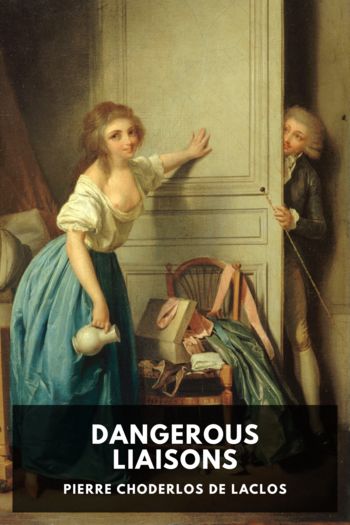Farewell, My Queen, Black Moishe [electric book reader .txt] 📗

- Author: Black Moishe
Book online «Farewell, My Queen, Black Moishe [electric book reader .txt] 📗». Author Black Moishe
For the first time in many years—since the time when I lived at Versailles, in fact—I am finding winter beneficial. The cold, outdoors, is fierce. The city, the ruins of the city, are frozen into a solid block. The branches of the trees, coated in a layer of ice, sparkle with the slightest ray of sunlight. “The city is shining,” a neighbor says to me. And she repeats, wonderingly, “Der frost.” “I’ll go and look,” I tell her, though I am quite convinced I will not feel able to do so. But that does not bother me. I’m very comfortable where I am. I lack for nothing. With all the curtains drawn, my fire lit, and blankets and eiderdowns heaped up over me, I lie perfectly still. There is only my hand moving smoothly over the page. That and, set against a background of pale flames, a succession of scenes, in the present—all equally in the present.
I have described things in an orderly manner where order there was none. I have introduced logical sequence into events I was obsessed with, whereas the memories were coming at me in an avalanche, chaotic and devastating. I have acted as though the calendar was right. As of course it is, even if I find that terribly painful to admit. Branches snap under the weight of their coating of ice. The forests are torn apart. Great cracks appear in the walls. In the houses, no fire is adequate to warm the air. Even people with fireplaces big enough to sleep in are no better off than their neighbors. When I exhale, a mist escapes from my lips, and to warm my hands, I have to bury them in the bedcovers until they are ready to resume their insectlike progress across the page.
We are into January. Soon it will be time for the Queen’s grand ceremonial balls, as the Prince de Ligne never fails to remind us . . .The Queen’s grand ceremonial balls . . . it is difficult, after all these years, to appreciate the importance of that event, the magic of those words. That it would soon be time for the Queen’s grand formal balls was palpable weeks ahead. Everyone was conscious of it; the entire population of the château was in a state of commotion, even the numerous individuals who were not involved. The moil and toil of preparations could be inferred partly from the increased number of earnest consultations, but it was also marked by the frenetic comings and goings of the child page boys. They hurried from one apartment to another, carrying messages back and forth, enchanted to be their young selves in their short perukes and their official attire with the shiny ornaments. From those little round, mocking faces came the perfume of unfettered joy, associated in my mind with essence of lilac, the preferred scent of the Queen’s page boys. Her pages, moreover, were always the ones most in evidence. They were everywhere to be seen, in their red velvet livery with the gold braid. Laughing, quick-moving, they slipped through the crowd. To them, everything was a game. They had transformed the ban on running into a more amusing way of getting around: they alternated one ordinary step with two gliding steps. Depending on the urgency of the message, the waxiness of the floor, and the lesser or greater press of people, these gliding steps, which were easily lengthened, could take them across a salon in one continuous movement . . .The child pages plied the waters of Versailles in every direction, confident of the ship that bore them, unaware of the vast ocean surrounding us. Whether delivering a love letter or a notification of exile, they brought the same joy to their task.
One image continues to symbolize for me how happy those page boys were, how actively aware of their good fortune. They had access to the Queen’s balls, where they were wonderfully apt at presenting sorbets or escorting the ladies back to their chairs. As I, on the other hand, was not eligible to attend, and as I loved oranges more than anything, young de Bigny would arrange to meet me by the ballroom doors at dawn, bringing me a supply of the splendid fruit. He kept his promise, but I would regularly find him asleep on the steps, the pockets of his page’s habit nearly bursting. I would carefully take the oranges and put them in my bag, then voluptuously peel one and bite into it on my way over to the Grand Lodgings for my cup of coffee. Here and there, in carriages left standing for the night, I would see couples intertwined.
Other signs, too, heralded





Comments (0)